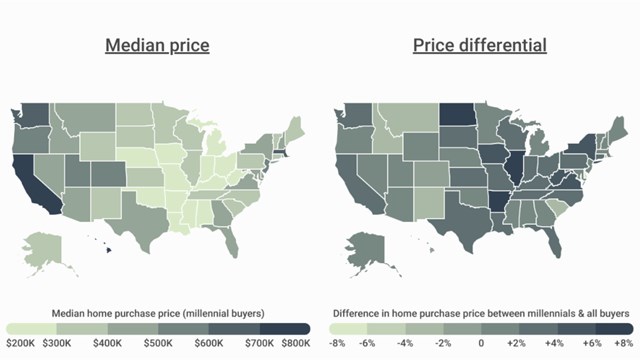Unlike most places in America, Manhattan does not have a multiple listing service, a directory that outlines all the properties currently for sale in a given region. Instead, New Yorkers rely on real estate brokers to get the word out that their property is for sale, through advertising, word of mouth and computer listings that are often shared among brokerage firms.
Because the broker plays such a key role in selling real estate here in New York, it is essential that apartment owners know their options and choose wisely when it comes time to sell. In dealing with a broker, the seller has a fundamental decision to make: whether to work with several brokers or to make an exclusive arrangement with just one firm. While there are restrictions, there are rewards for buyers who choose to exclusively market their property. Like most things in life, however, there are rules to play by when it comes to exclusives. With foreknowledge, the seller can get the most out of an exclusive arrangement and reach the one goal both sides want: a sale.
How Brokers Work
Once a buyer hands over a listing to a broker in any arrangement, be it exclusive or open, it is up to the broker to get it out and seen by potential buyers. This is usually done through advertising and by passing it along to other brokers within the firm and from other brokerage houses. When a listing is shared by one or more brokers, it is called co-brokering.
Since 62 percent of sales come from co-brokering, according to a study prepared by the National Association of Realtors, it is important that the seller find out if his or her agent works in such a manner. Ask if the agent will co-broke your listing immediately and with how many brokers outside the firm? Sellers should be wary of agents who want to keep listings in-house for a period of time; the only reason to keep a listing in-house is to obtain a full commission for the broker and this will not be to the advantage of the seller.
Ask about the firm's policy on commission splits; the split with exclusive brokers should be the same whether the sale is done in-house or co-broked with a broker outside the firm. Brokerage commissions range from six to ten percent with ten percent for smaller units and six percent for larger units. Keep in mind that this six to ten percent may be split in an outside co-brokerage situation, leaving each company three percent to five percent. However, if the commission is split equally, regardless of whether the co-broker is from another firm, there is no temptation for the broker to keep the listing in-house. A mark of a good broker is one who gets the listing out quickly and is not afraid of sharing a commission, thereby getting as many offers as possible and maximizing the potential sales price of the property.
While most brokers offer both open and exclusive services, some brokers specialize in one or the other. If you are going to opt for an exclusive arrangement, you may want to choose a firm that specializes in exclusives and understands the exact way the apartment should be exposed.
Exclusives Vs. Open
In an exclusive agreement, the seller enters into a contract with the broker stipulating that the seller will not bring that listing to any other firm within a set time period, usually six months. After the allotted time, the seller may have the option of moving the listing to another firm or extending the exclusive agreement. While the seller may not give out the listing to any other firms, this does not exclude the agent from doing so. Reaching out to their network of brokers, the agent can make their colleagues aware that they have a property to sell. The brokers would share the commission, although the seller's broker would still be known as the exclusive property agent.
In an open arrangement, the seller may give his listing to as many firms as he likes, although two or three is the usual number. If the seller opts for an open listing, more responsibility is placed squarely on the seller's shoulders, because the broker may not give the same attention to the listing as would be done with an exclusive.
Promoting the Property
With open listings, the broker will rely mostly on classified advertising and electronic services to market the property. One question to ask of a listing broker is if they post their classifieds with the World Wide Web, a commercial section of the Internet which is available to anyone on-line. Although the Internet is not yet a great medium in terms of actual sales, it is growing as more people buy computers. Another question to ask is if the brokers have brochures and if they're in color. How often do they come out and to whom are they distributed? All of these promotional efforts can help attract potential buyers to the apartment.
The seller should also make sure that the broker hands out the listing to as many other brokers as possible. All too often, in the case of exclusives, the broker only gives the listing to a few of their personal friends in the industry. The seller needs to make sure their listing is seen by as many buyers as possible.
The main advantage to an exclusive is that your broker will probably give the listing more attention than a non-exclusive listing would get. This might include hosting an open house for brokers and/or customers to show the property. It should also include national advertising in magazines and/or newspapers. Ask if the firm will make up a separate brochure or flier featuring your property. Most firms will print up special color fliers for high-end properties only and mail them out to brokers and potential buyers. Ask if your firm will do this for your apartment.
Making the Choice
There are other aspects the seller should consider before entering into any contract with a broker. For one, how available will the broker be to the seller and to other brokers? The broker should be able to guarantee they'll be on call at all times to show your property. Some brokers don't return calls for two to five days. Practically speaking, if a broker has too many exclusives and is working them alone, they may not be able to show the apartment when another broker calls.
Ask also if the firm has a relocation department. Ask how many agents are in their local network, tri-state network, national network and international network. Find out how many sales go through their National Referral Network (if they have one). The answers to these questions will provide the seller with a bigger picture of the firm and how connected each office is to others. A bigger reach increases the chances for a quick sale since brokers can stay in constant contact with one another.
Personality is another important factor in deciding what broker to work with. Sellers need to ask themselves: Will I enjoy working with this person? Do I feel I can have a working relationship with this broker? A good broker needs to be compassionate, empathetic, knowledgeable and professional. If the seller feels no chemistry, the result might be no sale.
A good broker should also be able to give you advice on pricing. Have your broker do a comparison report of properties on the market. This report should enable the seller to price your property properly. An apartment priced too high usually ends up selling lower than an apartment priced rationally or may linger on the market for too long.
Finally, the agent should advise clients to find out about financing. How much financing does your building allow? Would you consider holding paper on the apartmentoffering seller financing? Be sure to have this information in place before your broker starts talking to potential buyers.
When giving your listing to a broker, being prepared can only help make the rocky road to a sale more steady and sure. An exclusive can help, but only if the rules are followed.
Marilyn Kaye is president of Prudential MLBKaye International Realty.






Leave a Comment